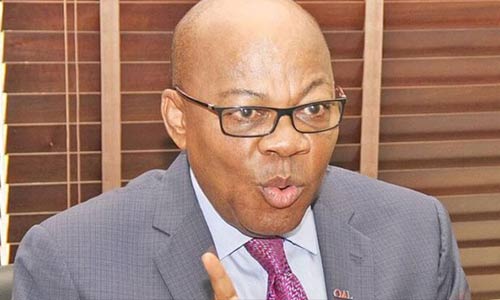Former chairman of the Nigerian Bar Association, NBA, Dr. Olisa Agbakoba, SAN, has asked the chairman of Independent National Electoral Commission, INEC Prof Mahmood Yakubu, to clarify the commission’s position on section 134 of the 1999 constitution to the public.
Section 134 of the 1999 Constitution provides requirements to be met by a Presidential candidate in relation to the office of the President of Nigeria.
In a letter dated January 17, 2022 and addressed to the INEC chairman, Agbakoba stated that his request for clarification on the provision of section was premised on the seemingly ambiguous nature of the section.
Agbakoba, who noted that many concerned Nigerians have contacted him in the past days seeking correct interpretation of Section 134 of the constitution said that there is urgent need for the INEC chairman to clarify the correct meaning of the section to the public.
The letter read: “I write to commend INEC on the great job to ensure free, fair, verifiable, credible and transparent elections. However, I am a little worried. Many concerned Nigerians contacted me about the correct interpretation of section 134 of the 1999 Constitution that provides requirements to be met by a Presidential candidate in relation to the office of the President of Nigeria.
“I reviewed section 134 carefully, specifically, subsections 134 (1) (b) and (2) (b), and wondered if “two-thirds of all the States in the Federation and the Federal Capital Territory, Abuja” means either of the following: that a presidential candidate must score not less than one-quarter of the votes cast at the election in each of at least two-thirds of all the States in the Federation which means 24 states, the 24 States will include the Federal Capital Territory Abuja as a “State”, or (b) that a presidential candidate must score not less than one-quarter of the votes cast at the election in each of at least two-thirds of all the States in the Federation which means 24 states and in addition to meeting the one-quarter requirement in 24 states, a candidate must also win one-quarter of the votes cast in the Federal Capital Territory, Abuja.
“In this sense, a Presidential candidate must have one-quarter of the votes cast in the Federal Capital Territory, Abuja, in addition to scoring not less than one-quarter of the votes cast at the election in 24 States of the Federation, to be duly elected.
Raising vital questions that the INEC chairman must address, Agbakoba said: “is the requirement that a presidential candidate must score not less than one-quarter of the votes cast at the election in each of at least two-thirds of the 36 States of the Federation; does this mean that the Federal Capital Territory, Abuja is incorporated in the 24 States?
“is the requirement that a presidential candidate must score not less than one-quarter of the votes cast at the election in each of at least two-thirds of the 36 States of the Federation; does it mean that the presidential candidate must also score not less than one-quarter of the votes cast at the election at the Federal Capital Territory, Abuja?
“can a candidate that scored not less than one-quarter of the votes cast at the election in 36 States of the Federation but fails to score one-quarter of the votes cast at the election at the Federal Capital Territory, be duly elected as President of Nigeria?
“Finally, section 134(1)(a) provides that a candidate for an election to the office of President shall be deemed to have been duly elected, where, there being only two candidates for the election, the candidate has the majority of votes cast at the election, but section 134(2) provides that a candidate for an election to the office of President shall be deemed to have been duly elected where, there being more than two candidates for the election, the candidate has the highest number of votes cast at the election.
The Constitution describes the winner in two languages. One, the winner must score the majority of votes and the other, the winner must score the highest number of votes.
“This is confusing. To be honest, I am not quite sure of the right answers to my questions. I just thought to bring this to your attention as something you might wish to clarify to the public.”
In this article
